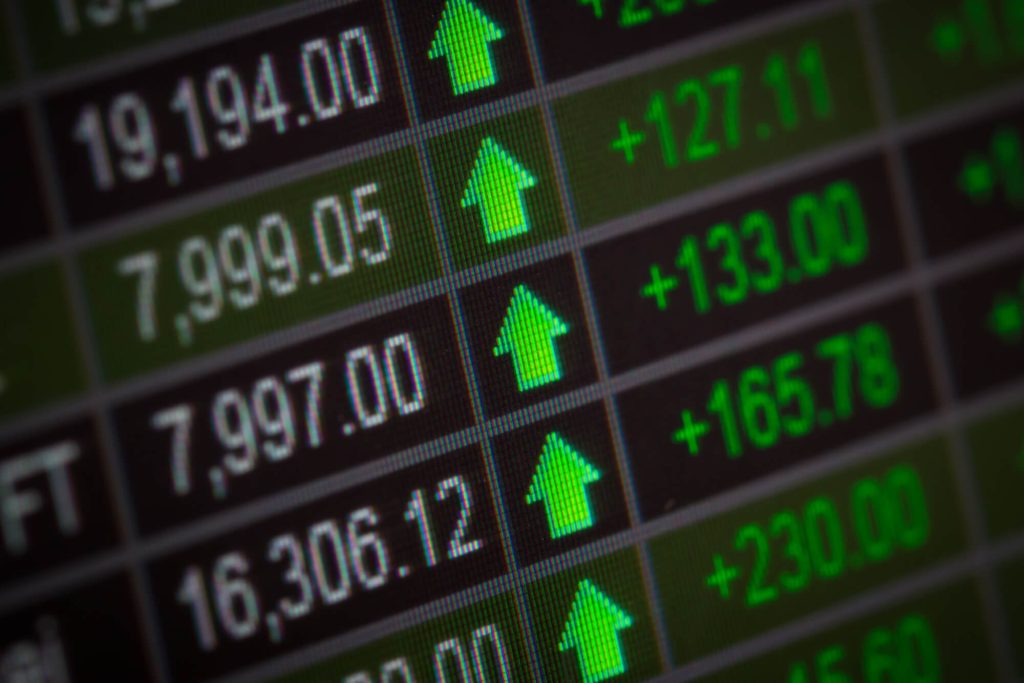Comparing CFD Trading and Blockchain Investments: Which One is Right for You?
When it comes to investing, there are many options available in the market. Two popular investment options are CFD trading and blockchain investments. Both are unique in their own ways, and both come with their own set of advantages and disadvantages. In this article, we will explore and compare CFD trading and blockchain investments, and help you decide which one is right for you.
1. Introduction
Investing in financial markets has become more accessible and convenient than ever before. With the rise of technology, investors have access to a range of investment options, including CFD trading and blockchain investments. While both are considered to be innovative investment options, they are quite different from each other. In this article, we will explore both investment options and compare them based on various factors such as risk involved, investment returns, regulation, and liquidity, among others.
2. What is CFD Trading?
Definition of CFD Trading
CFD stands for Contract for Difference, which is a popular trading instrument that allows traders to speculate on the price movements of various financial assets. It is a derivative product, which means that the price of a CFD is derived from the underlying asset’s price. In other words, traders do not own the underlying asset, but they can take advantage of the price movements by opening long or short positions.
How CFD Trading Works
CFD trading is conducted through a broker or an online trading platform. Traders can buy or sell CFDs based on their market expectations. If a trader expects the price of an asset to go up, they can open a long position, and if they expect the price to go down, they can open a short position. CFD trading offers leverage, which means that traders can trade with a small amount of capital and take advantage of the price movements of large financial assets.
Pros and Cons of CFD Trading
Pros:
- Access to a wide range of financial assets
- High leverage, which can amplify profits
- Ability to trade long or short positions
- No ownership of the underlying asset
- Ability to trade 24/7
Cons:
- High-risk involved due to leverage
- No ownership of the underlying asset
- Limited regulation in some jurisdictions
- Potential for slippage during volatile market conditions
- Overnight financing fees for holding positions overnight
3. What are Blockchain Investments?
Definition of Blockchain Investments
Blockchain investments refer to investing in cryptocurrencies or blockchain-based projects. Blockchain is a decentralized digital ledger that records transactions and provides transparency and security. Cryptocurrencies are digital assets that use blockchain technology for transactions and are not controlled by any central authority.
How Blockchain Investments Work
Investing in blockchain involves buying and holding cryptocurrencies or investing in blockchain-based projects. Cryptocurrencies can be bought through cryptocurrency exchanges or peer-to-peer platforms. Investing in blockchain-based projects involves buying tokens or coins issued by the project.
Pros and Cons of Blockchain Investments
Pros:
- High potential for returns
- Decentralized and transparent technology
- Low transaction fees
- Opportunity to invest in innovative projects
- Global accessibility
Cons:
- Highly volatile market
- Lack of regulation and security concerns
- Limited acceptance and adoption
- Limited information available on some projects
- Possibility of scams and frauds
4. Comparison between CFD Trading and Blockchain Investments
Risk Involved
CFD trading involves a high level of risk due to the leverage involved. Traders can lose more than their initial investment if the market moves against their position. On the other hand, blockchain investments are highly volatile, and the market can experience significant fluctuations in a short period. The risk involved in blockchain investments can vary depending on the cryptocurrency or project invested in.
Investment Returns
CFD trading offers high potential returns due to the leverage involved. Traders can amplify their profits by trading with a small amount of capital. However, the potential losses can also be amplified due to leverage. Blockchain investments also offer high potential returns, especially in the case of cryptocurrencies that experience significant price increases. However, the market is highly volatile, and there is a possibility of significant losses.
Regulation
CFD trading is regulated in most jurisdictions, and traders can expect some level of protection. However, regulation can vary depending on the jurisdiction, and traders must be aware of the regulatory framework in their country. On the other hand, blockchain investments are not regulated in most jurisdictions, and investors must exercise caution and do their research before investing in any cryptocurrency or project.
Liquidity
CFD trading offers high liquidity as traders can enter and exit positions quickly. On the other hand, liquidity in the cryptocurrency market can vary depending on the cryptocurrency and exchange used.
5. Which One is Right for You?
The choice between CFD trading and blockchain investments ultimately depends on an individual’s risk appetite, investment goals, and knowledge of the market. CFD trading is suitable for traders who are comfortable with high-risk investments and have a good understanding of the market. On the other hand, blockchain investments are suitable for investors who are willing to take a long-term view and are comfortable with the high volatility of the market.
6. Conclusion
In conclusion, both CFD trading and blockchain investments offer unique investment options with their own set of advantages and disadvantages. CFD trading offers high leverage and access to a wide range of financial assets, while blockchain investments offer the potential for high returns and innovative projects. The choice between the two ultimately depends on an individual’s risk appetite, investment goals, and knowledge of the market.
7. FAQs
- Is CFD trading regulated?
- CFD trading is regulated in most jurisdictions, but regulation can vary depending on the jurisdiction.
- Are blockchain investments safe?
- Blockchain investments can be risky due to the high volatility of the market and lack of regulation in most jurisdictions.
- Can I lose more than my initial investment in CFD trading?
- Yes, traders can lose more than their initial investment due to the leverage involved in CFD trading.
- How can I invest in blockchain-based projects?
- You can invest in blockchain-based projects by buying tokens or coins issued by the project.
- What should I consider before investing in CFD trading or blockchain investments?
- You should consider your risk appetite, investment goals, and knowledge of the market before investing in CFD trading or blockchain investments.




